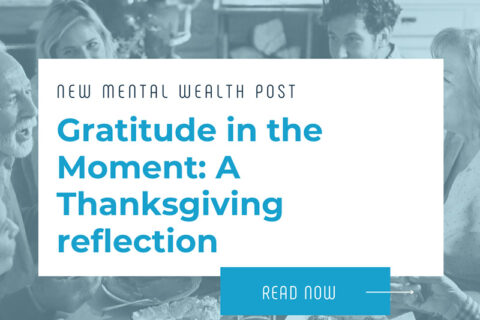Boundaries—What They Are and How to Keep Them Healthy
By: Chuck Junkin, LPCC-S
Every fall, I notice a theme in conversations with clients and families—people start feeling stretched thin. Schedules pick up, expectations grow, and suddenly it’s hard to tell where our responsibilities end and someone else’s begin. That’s when I like to bring up one of the most important tools for emotional well-being: healthy boundaries.

What Are Boundaries?
Boundaries are simply the limits we set to protect our time, energy, emotions, and values. They help define what is ours to manage and what belongs to someone else. Without boundaries, we can feel overwhelmed, resentful, or taken for granted. With them, we make space for healthier relationships and a stronger sense of self.
Here’s how I like to break it down:
-
With family: Boundaries might mean saying, “I can’t talk about this right now,” or deciding not to take sides in an argument. It’s okay to love people deeply and still protect your peace.
-
With friends and peers: Sometimes boundaries look like not being the “go-to” problem solver every time someone else is in crisis. You can care without carrying their emotional load.
-
With strangers or acquaintances: Healthy limits might mean deciding what personal information to share—or not share—about your life, your plans, or your emotions.
Why Boundaries Feel So Hard
Many of us were raised to believe that saying “no” is selfish or unkind. But boundaries aren’t walls; they’re fences with gates. You get to decide when and how to open the gate—and when to keep it closed. Setting limits isn’t rejection. It’s respect—both for yourself and for others.
How to Begin
-
Notice your discomfort. That’s often your first clue a boundary is being crossed.
-
State your limits calmly. “I’m not available for that right now,” or “I need to think before I commit.”
-
Stick to what you said. Consistency teaches others that your words matter.
-
Expect some pushback. When people are used to you saying “yes,” your “no” might surprise them. That’s normal. Stay steady.
Over time, these habits build confidence. You’ll start noticing less guilt, fewer arguments, and more genuine connection.
Reflection of the Month
Think about one area of your life—family, work, or friendships—where you’ve been feeling drained. Ask yourself:
“What boundary would help me protect my peace in this situation?”
You don’t need to overhaul your life—just start with one small change and practice it this week.
Boundary Challenge
Before you say “yes” to something this week, pause for five seconds.
Ask yourself:
-
Do I want to do this?
-
Do I have time to do this?
-
Will saying yes cause me stress or resentment later?
If the answer is yes to that last question, give yourself permission to say no—with kindness and clarity.
At Integrity Counseling, we help people learn to set boundaries that support both their relationships and their mental health.
If you’re finding it difficult to speak up for your needs or to maintain your limits, this might be the perfect time to strengthen that skill.
Reach out today to schedule a session or consultation—let’s work together to help you create the calm, confident life you deserve.


